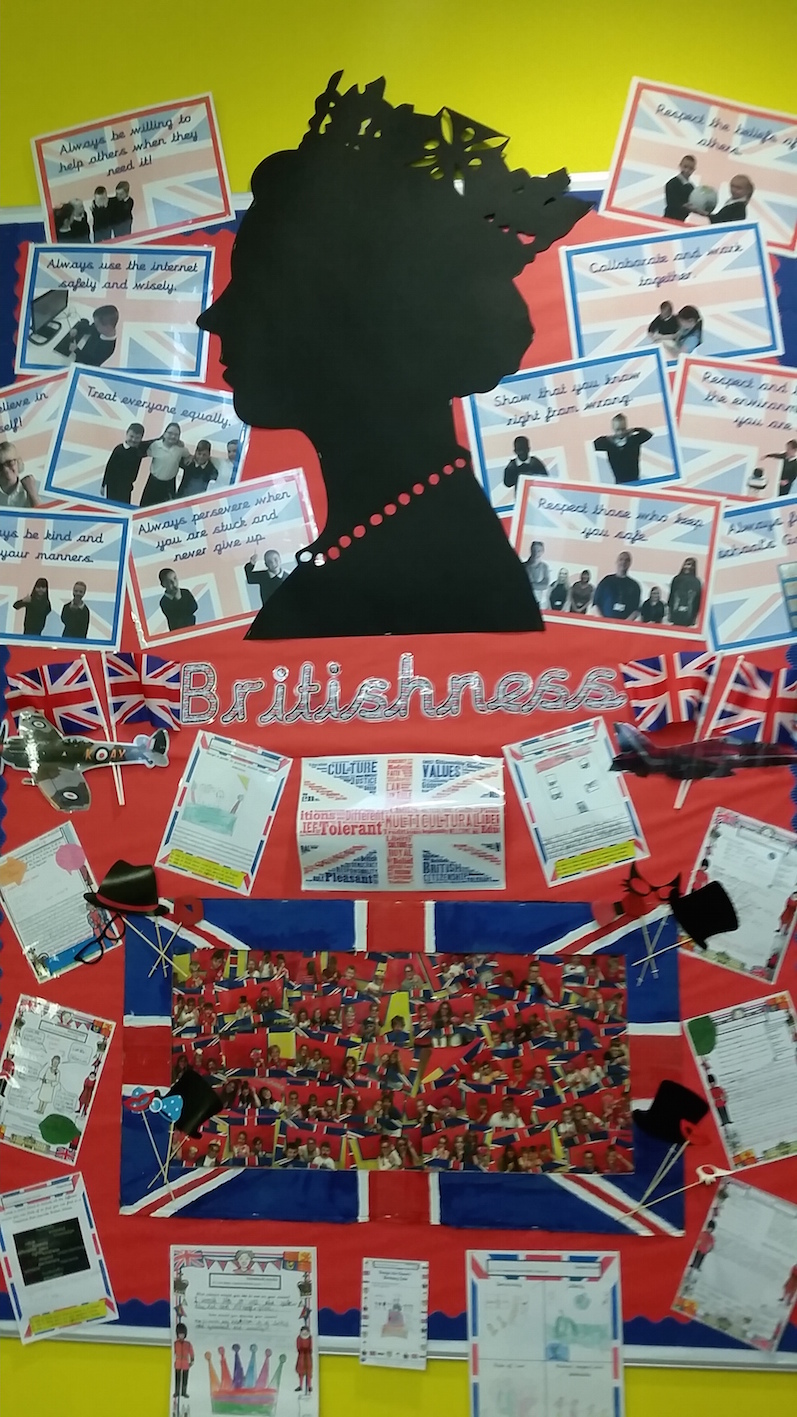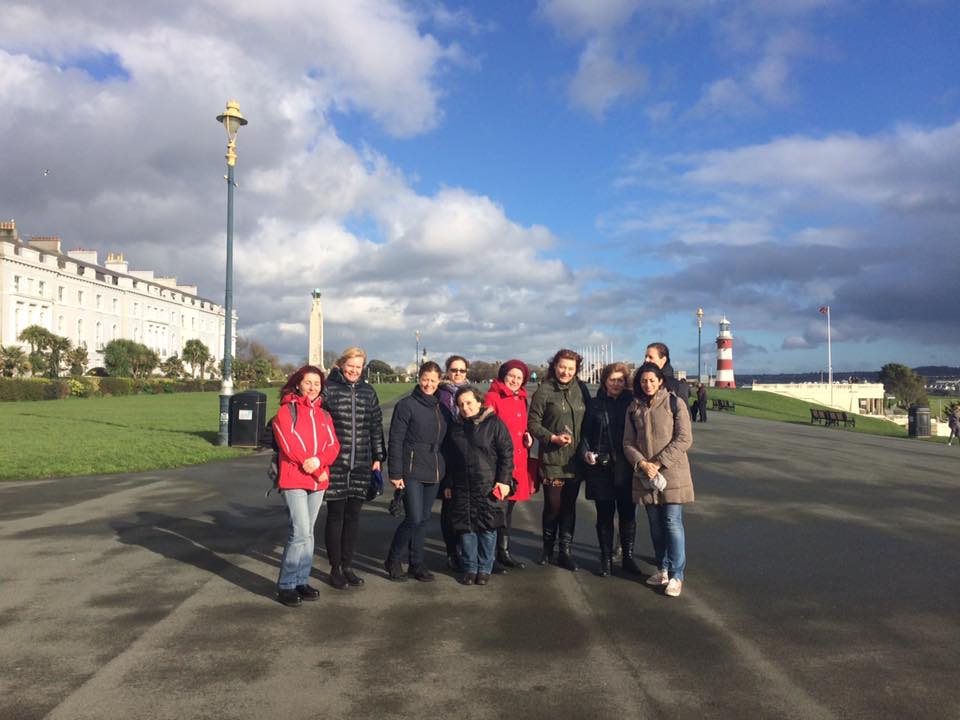
Hi everybody! I start finally my Erasmus+ K1 experience in Plymouth! I'm going to attend the training course "Addressing diversity and equality in classroom", with a special focus about migrants and foreign pupils. So, let's start!!
P.s. don't forget to do these things today (or every day?)
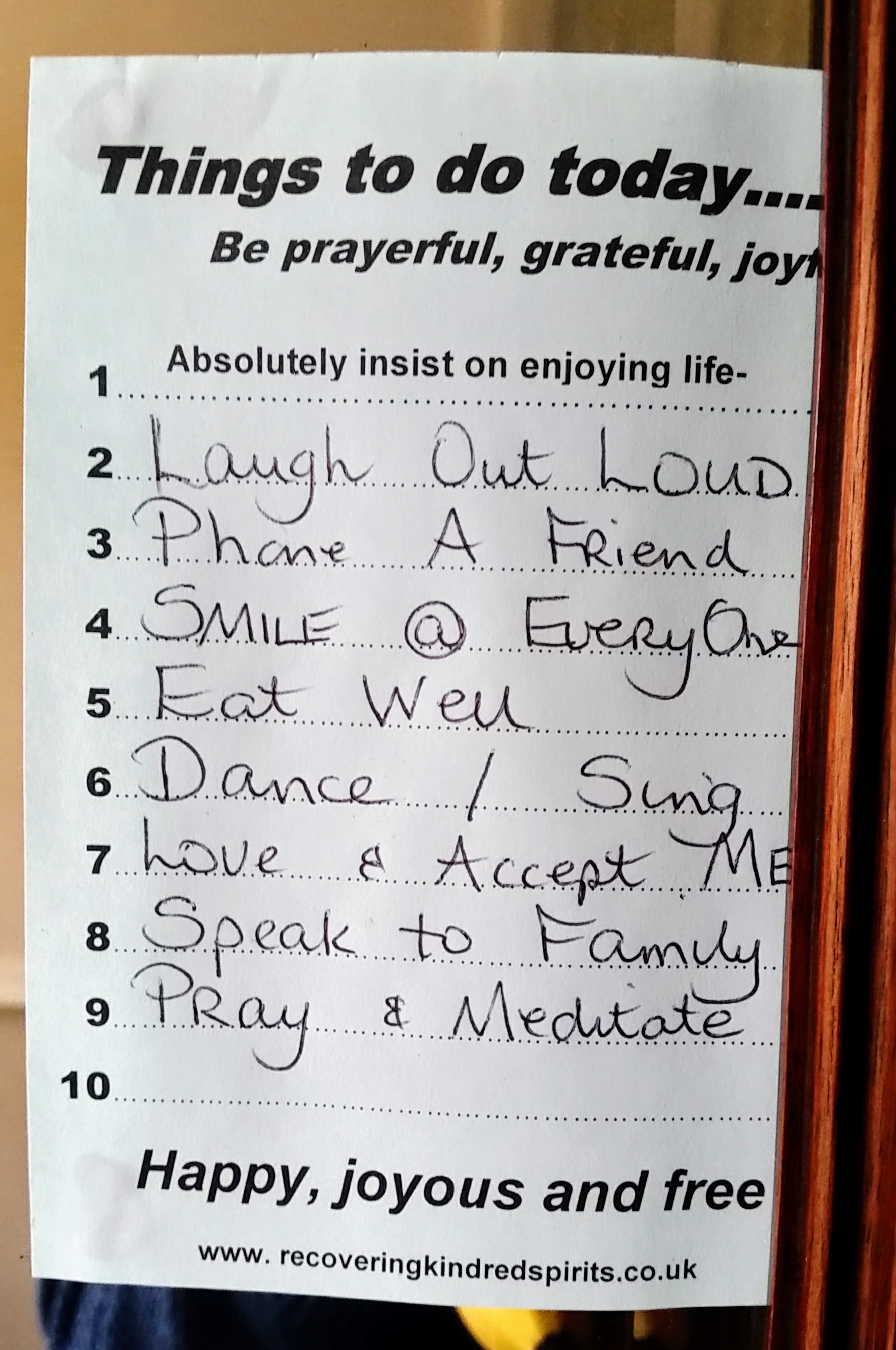
Thanx to Lizzie, my lovely irish/british host *_*
Day 1, 4th March 2017
TOPIC COURSE DESCRIPTION
Today we spoke about Education system in UK.
CALENDAR
In England there are 46 counties. We are in Davon (n°45), which has 10 different local authorities. This means that UK has a federal school system, so all counties can start and finish in different period (f.e. Plymouth vacation 25 july-31 august, but Scotland 1 july-17 august).
Duration and structure of the school year:
- minimum of 190 teaching days
- 5 days a week
- 3 terms, each with a half-break
School time: 8:50 am – 3:00 pm
EDUCATION SYSTEM
-
primary education: nursery (3 years) + primary school (from 5 years old, for 6 years)
-
secondary education: from 11 to 16 years old.
- sixth form or college: from 16, for 2 years. In college pupils can choose only some subjects.
The schools can be mixed or single-sex. Primary schools are all mixed, but from secondary they can be single-sex.
Mainstream schools:
Academies:
- have a sponsors (f.e. Marine Academy, which have 3 sponsors: the Plymouth University, Cornwall College and Plymouth City Council)
- independent from LA
Other types of schools:
- grammar schools: run by the government; they’re free; select their pupils on the basis of academic ability (11+); single-sex school. There are no many migrant children, because they have not a good English level.
- independent schools: private school; charge fees to attend instead of being funded by the government; exempt from following National Curriculum; no mandatory inspection requirements for achievement; about 7% of children, especially children who have some special needs
- faith schools: run like other state schools (free of charge); have to follow the national curriculum except for religious studies; free to only teach about their own religion
HOME EDUCATION
- section 7 of the Education Act (1996) states: “duty of parents to secure education of children of compulsory school age”
- 36,609 home educated children
- there has been a 65% increase in children recorded as home educated in the UK over six years
- normally because parents are not happy about secondary schools. The schools send material to parents
TRANSPORT & MEAL
The school provide free transport for all pupils of compulsory school age (5-16), if their nearest suitable school is:
- beyond 2 miles: 3.2 km (if below the age of 8)
- beyond 3 miles: 4.8 km (if aged between 8 and 16)
Free school meal is for all pupils in year 1 and 2, then is free for families with problems. The prices are from £2 to £2.20.
SCHOOL BUDGET
- £4,900 spent on each primary school pupil currently spent on each primary school pupil
- £6,300 spent per secondary student
- this is around double, in real terms, the amount spent in the mid-1990s
SCHOOL UNIFORM
- most schools require pupils to wear a school uniform, with the exception of the Sixth Form
- the cost of a uniform in a secondary school for parents is about £234
THE ETHNIC MINORITY ACHIEVEMENT TEAM (EMAT)
- aims to provide equality of opportunity for all minority ethnic pupils
- the service consists of a team of consultants, inclusion support assistants and bilingual teaching assistans
- provides in service training for teachers and support staff
DISCOVERING PLYMOUTH
I couldn't image Plymputh was a city so rich of history. And for me, a history teacher, this afternoon was full of amazing sensations.
For example, can you fell the emotions of those 102 pilgrims, who left England in 1620 to reach a new land, a new World? Yes, I'm talking about the Mayflower, departed from Plymouth during the kingdom of his majesty James I, with a lot of dreams and hope.
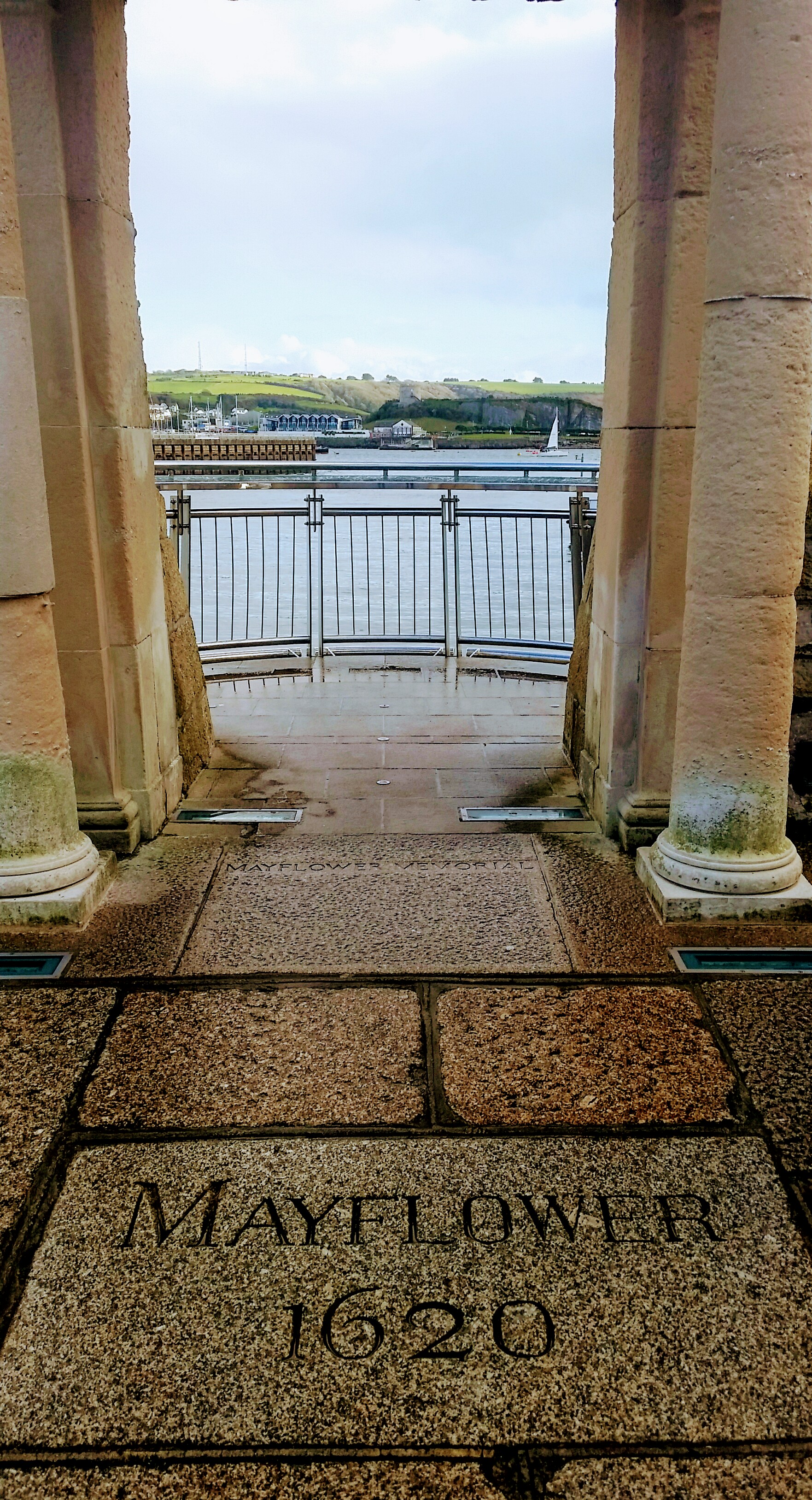
And what to say about sir Francis Drake, the pirate, the slever, the sea captain, who carried out the second circumnavigation of the world in a single expedition? For queen Elizabeth I, Drake become an hero very quickly when he captured a Spanish ship laden with 25,000 pesos of Peruvian gold (about £7m by modern standards). According to legend, he was playing bowl in front of Plymouth Hoe, when the "Invencible Armada" set against city's cliff, attempting to invade England, in 1588 (yeah, also this story appened in Plymouth!).
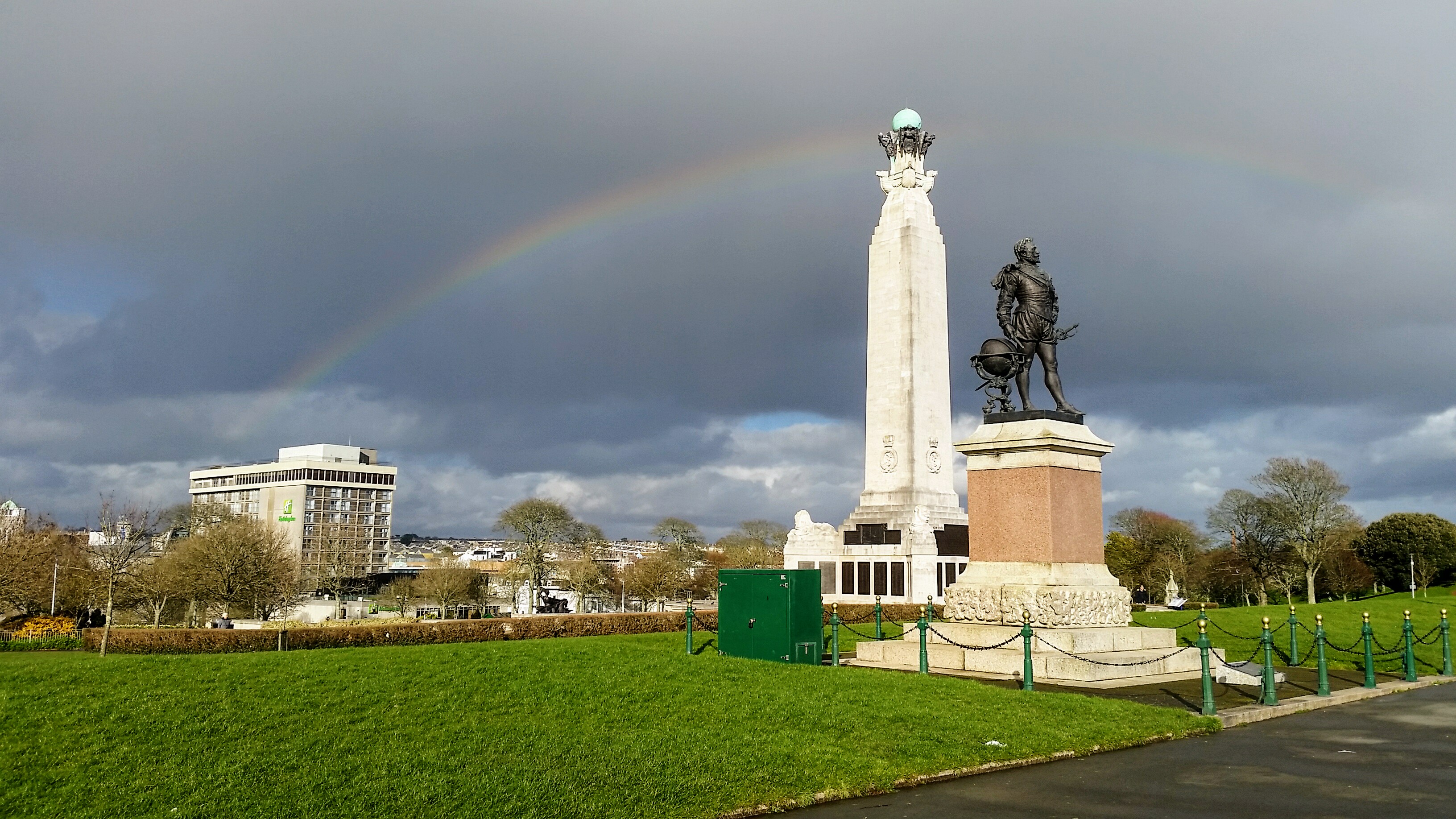
Also the rainbow is behind sir Francis Drake's back
Do you think it's over? Of course, not! Because during this first afternoon in Plymouth, I have a signal not only of history, but also one of my next trips. For I don't know how long, I'm thinking to make the pilgrimage to Santiago de Compostela. And today, so far away from Spain, I suddenly saw a seashell which told me about this. Infact, over the centuries, many pilgrims sailed from England through Plymouth, which was one of the only two ports licences for this journey. The pilgrims often wore a sign indicating their destination and those going to Santiago wore a scallop shell. For this reason it became a general symbol of pilgrimage.
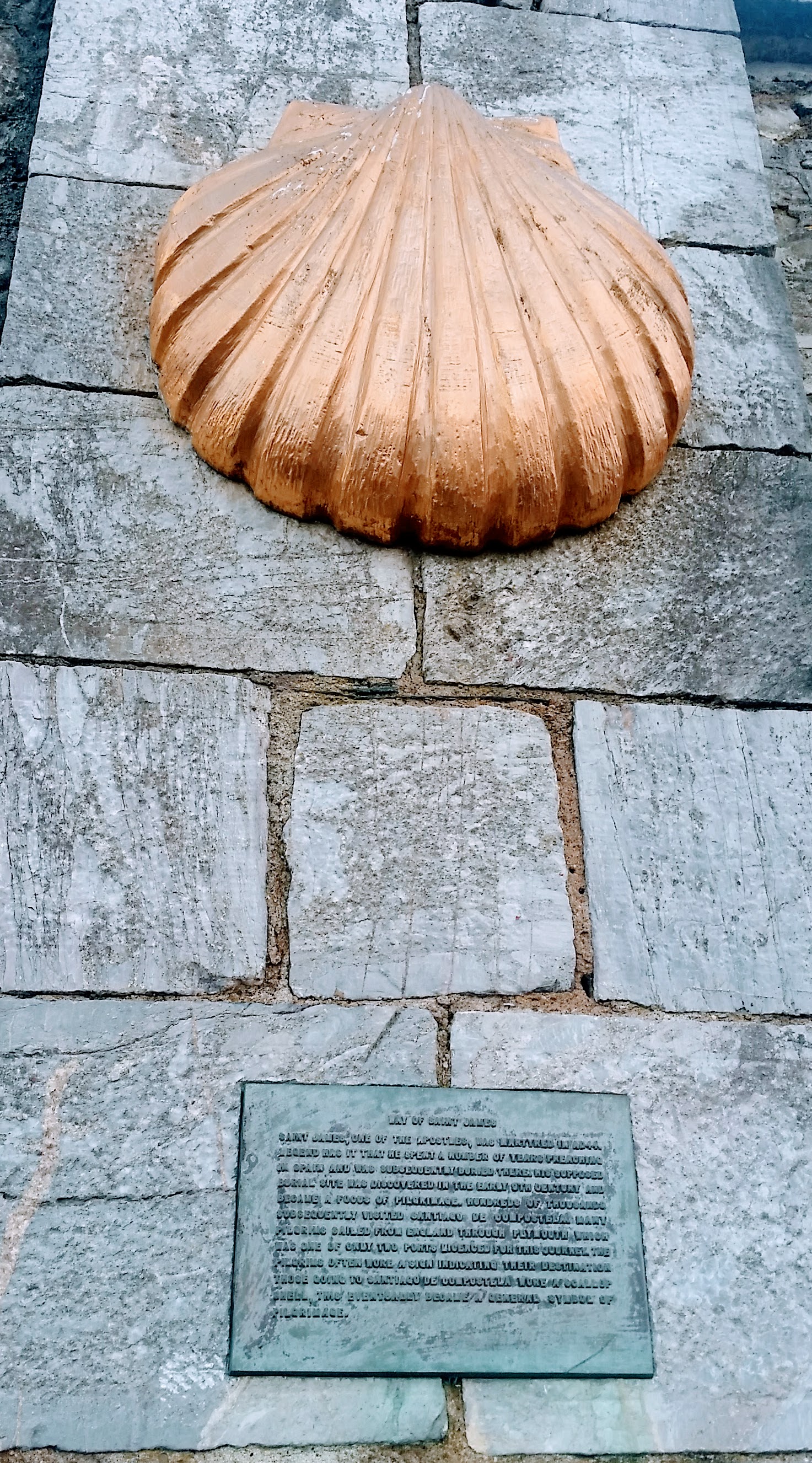
There are also other stories to tell, for example about sir Walter Raleigh and "his" Virginia, but it's late for me and there're many things to discover tomorrow. See you shortly, Plymouth!
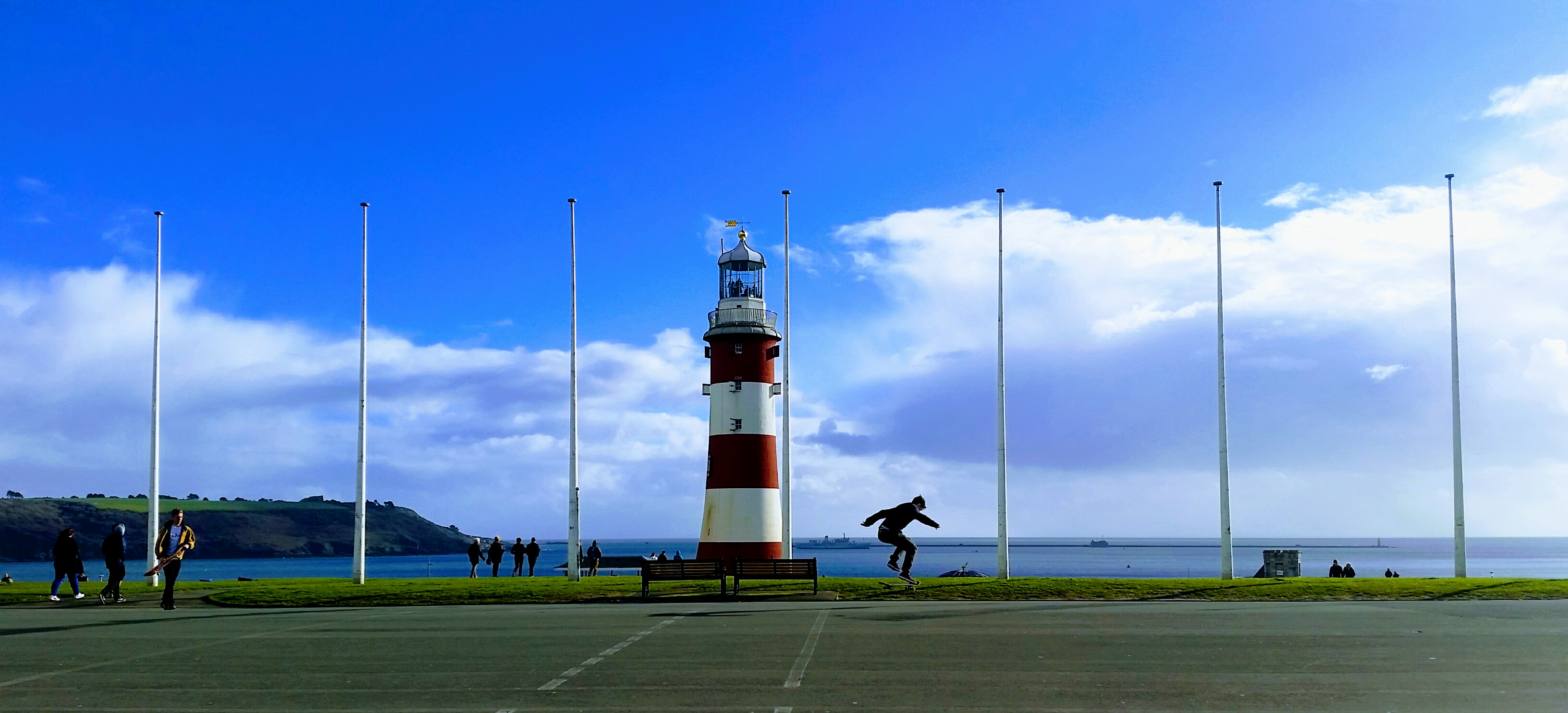
Day 2, 5th March 2017
TOPIC COURSE DESCRIPTION
Today we made the presentations of our school and then we spoke about Education system in UK (2° part).
ROMANIA
In our course there're 3 groups from Romania and also from the same city (Tuzla). They have special needs for Gipsy, who consistute one of the country's largest minorities, and for families with a low profile. Generally, infact, almost 60% of pupils have Rrome ethnicity and a lot of them don't finish school or their parents haven't legal jobs. For this reason, they have a lot of projects about inclusion and to reduce early school leaving, also sustained by European Union.
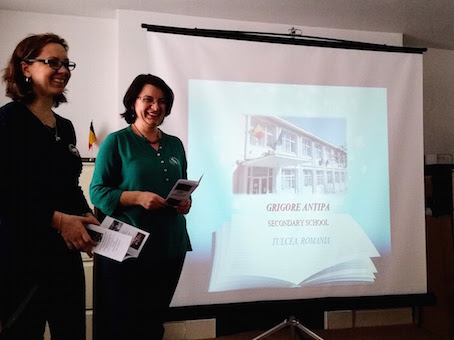
Three teachers, instead, come from Sundsvall, Sweden. They work in a school where adults can study the same subjects taught in compulsory and upper secondary schools. After this upper secondary education, a person can pursue further studies in a college or university. As we can imagine, there're a lot of migrants, especially from difficult area of Africa or Middle-West. One of the first problem for them is to learn swedish as foreign language and for this reason they have special courses for free. And, of course, one of their extra-curriculum activity is one of my dream: skiing! *_*
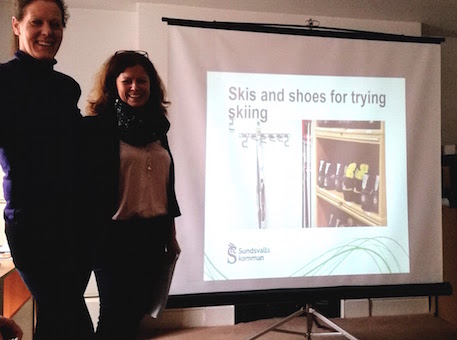
At last, but not least, it was the moment to present our lovely school. I'm sure after my super-presentation everybody'd like to work with us!!! (of course, I'm joking! XD)
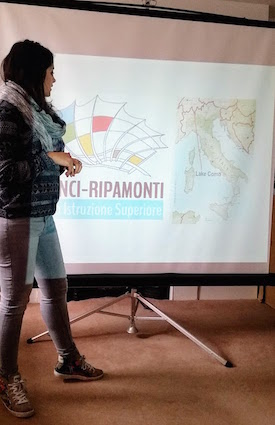
After this moment, we started the second part about Education system in UK. We thought how to involve spiritual, moral, social and cultural (SMSC) competences. All schools in England, infact, must show how will their pupils develop in SMSC and must prepare a Cultural passport, developed by department of education, which allow children to record, share and review their cultural learning and experiences. For this reason the government is spending £292 mln to 2015 on cultural education.
An example in UK it's the Pet education. There’s also a national pet month (1 april – 1 may 2017).
We share then our ideas in small groups, such as: culinary art, volunteering, fundraising (= raccolta fondi), debate, handmade activities, ecological activities, intercultural events, mothertongue day, meetings with Police.
Since November 2014, schools must promote also british value. For example, in Plymstock school they promote:
• democracy
• students elect peer to represent them at House Forums and the School Council
• student voice on key school decisions through processes including School Council
Promotion of british value:
• the rule of law
• promote the importance of law
• school behaviour policy
• drugs education
• individual liberty
• anti-bulluying
• tolerance of those of different faith and beliefs
Day 3, 6th March 2017
TOPIC COURSE DESCRIPTION
Today we have a new, stimulating trainer: his name is Rupert Blomfield and he's the manager of Amber initiatives. He’s been working with refugees for 20 years and also he's been living in South Africa for a while.
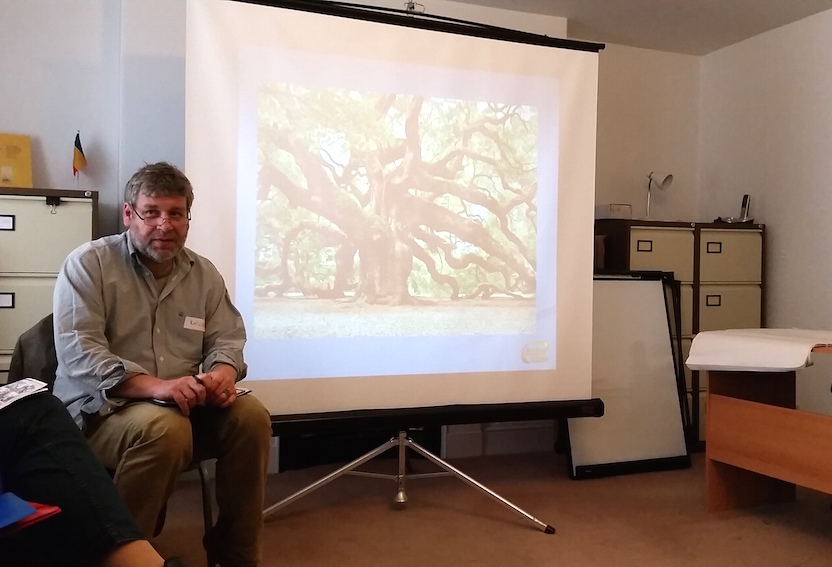
We started with a easy, but not obvious, question: freedom of speech is a human right?
Article 10 of the EUROPEAN CONVENTION ON HUMAN RIGHTS provides the right to freedom of expression and information, subject to certain restrictions that are “ in accordance with law” and “necessary in a democratic society”. This right includes the freedom to hold opinions and to receive and impart information and ideas.
The first amendment to the UNITED STATES CONSTITUTION bars (=bandisce) Congress from “abridging the freedom of speech or of the press”.
Come up with definitions for:
• prejudice: an adverse judgment or opinion formed beforehand or without knowledge or examination of the facts
• discrimination: the unjust or prejudicial treatment of different categories of people, especially on the ground of race, age or sex OR the recognition and understanding of the difference between one thing and another (but think: discriminate is not necessary a negative word, f.e. with food)
• stereotype: a consolidate prejudism, a widely held but fixed and oversimplified image or idea of a particular type of person or thing.
• racism: a conduct of words or practices which advantage or disadvantage people because of their colour, culture or ethnic origin
prejudice + discrimination + power = racism
There are different types of racism:
• direct racism
• indirect racism
• institutionalized racism: the collective failure of an organisation to provide an appropriate and professional service to people because of their colour, culture, or ethnic origin. It can be seen or detected in processes, attitudes and behaviour which amount to discrimination through unwitting prejudice, ignorance, thoughtlessness and racist stereotyping which disadvantage minority ethnic people (MacPherson definition)
8 processes of discrimination exercises:
1) stereotyping
2) make invisible
3) treat people like infants
4) dehumanise
5) trivialise (play down an event) (= banalizzare)
6) medicalise (object of pity) (= oggettivare qualcosa per cui si prova pena)
7) welfarise – associated with the lazy
8) marginalisation – who you exclude
And then some videos for thinking about migration and racism:
• where are the refugees? https://www.youtube.com/watch?v=0_QrIapiNOw
• how racist are you? https://www.youtube.com/watch?v=Nqv9k3jbtYU
• the danger of a single story – ted https://www.youtube.com/watch?v=D9Ihs241zeg
«No man is an island entire of itself; every man is a piece of the continent, a part of the main; if a clod be washed away by the sea, Europe is the less, as well as if a promontory were, as well as any manner of thy friends or of thine own were; any man's death diminishes me, because I am involved in mankind. And therefore never send to know for whom the bell tolls; it tolls for thee».
(John Done, 1573-1631)
INTERCULTURAL EVENING
This evening we had a great time together ... it was the moment for an intercultural evening! So we prepared our traditional food, to share our cultures and our eating habits. To be honest, the thing I remember best is the hand-made romanian wine!!
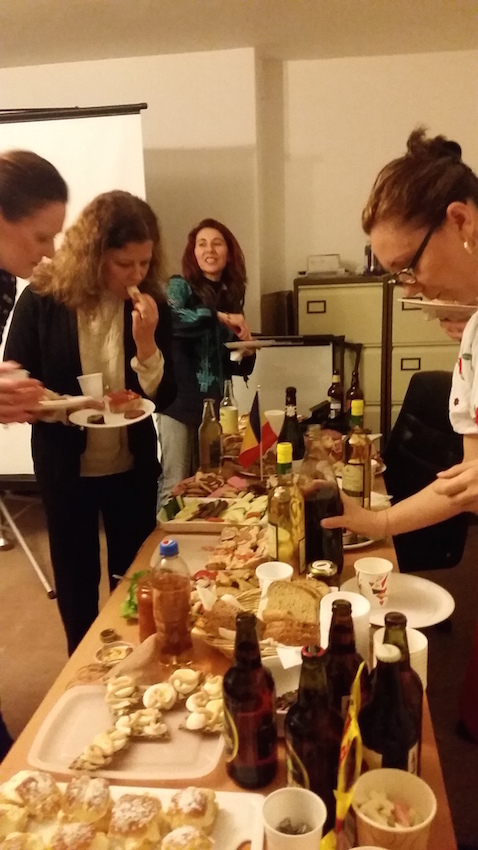
Day 4, 7th March 2017
PLYMSTOCK SCHOOL
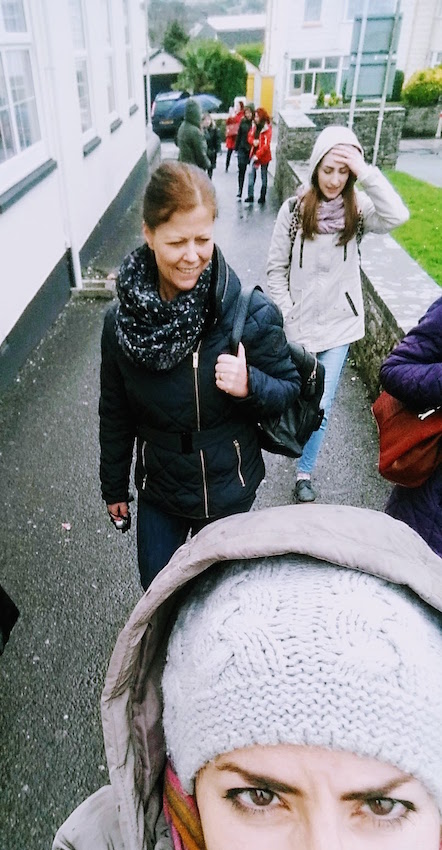
In a very "sunny&british" day, we visited a secondary school in Plymouth.
We talked with some leaders of the school, especially with the contact persons for the special needs and foreigners students. He said us today in Plymouth the foreign population is about 9-10%, especially thanks to the University. Students who arrive in the school without language knowledges, remain in the same age group, doing extra lessons one-to-one with the teacher, in a philosophy that is as inclusive as possible. For them an important problem is the Islamic radicalization, which happens especially on internet. For this reason, they work a lot on online security and they control daily the websites frequently used by students.
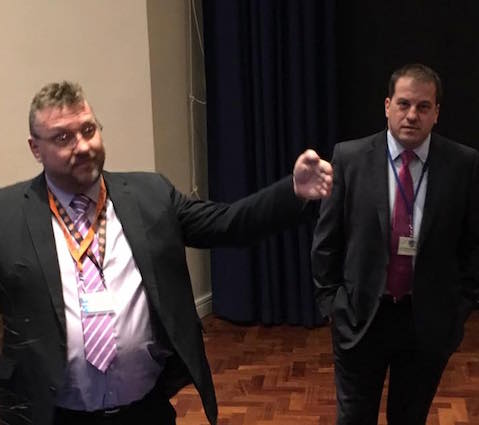
Another issue debated was how to avoid early school leaving. For students coming from disadvantaged classes, the school establishes some privileges (f.e. free meals and photocopies, and even a daily wage!). Who is not in school every day, simply loses these privileges.
Integration means sharing: intercultural moments, in this view, are essential, for example to show that not all Iraqis are terrorists. We must speak up, we must open our minds to diversity. Therefore also the school must prove to do that. For this reason, for example, each student is free to express his sexual orientation, and a girl can, if she wishes, wears a male uniform (and vice versa).
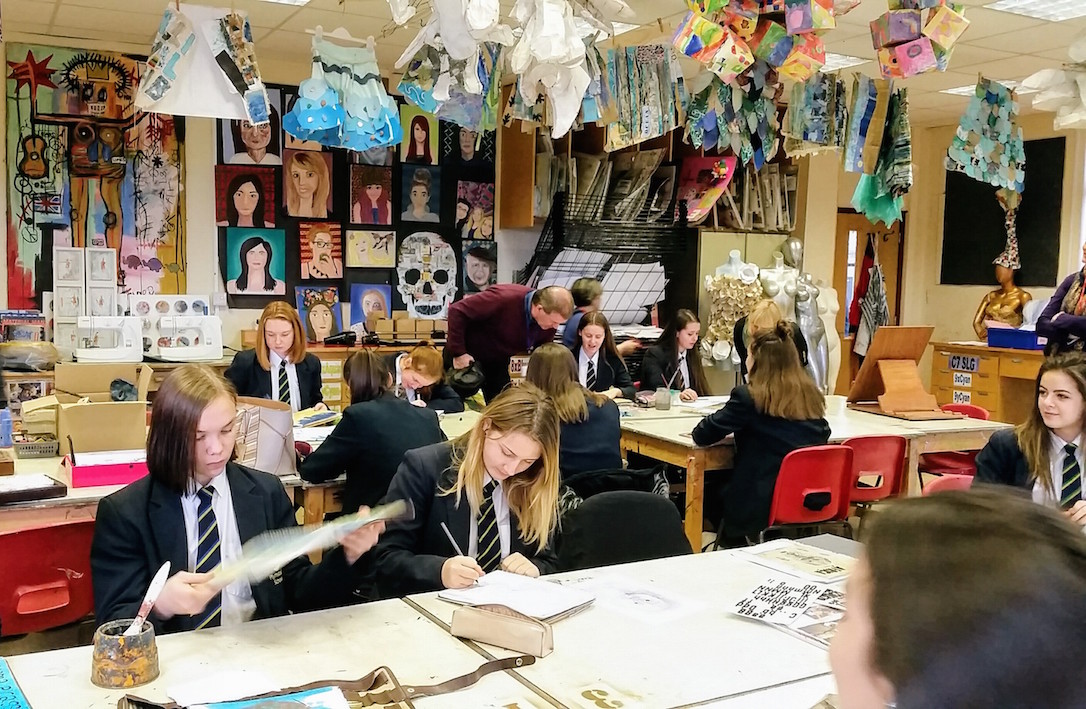
but my love for this school has blossomed finding myself in front of the classroom in history. At that moment I realized a little, as a fundamental difference with the Italian system: here every teacher has his class. This means working with his books, his material, his slate, his computer (which it is responsible and therefore needs to work properly)
As soon as I stepped through the threshold of the Art's classroom, however, I have been affected by the air what you can breathe in this school (and also, the seriousness of his students!).
As soon as I stepped through the threshold of the Art's classroom, however, I have been affected by the air what you can breathe in this school (and also, the seriousness of his students!).
But I felt the pleasure for this school, when I found myself in front of the History's class. At that moment I realized a little, as fundamental difference with the Italian system: here every teacher has his classroom. This means he works with his books, his material, his interactive whiteboard, his computer (and here, computer work!!)
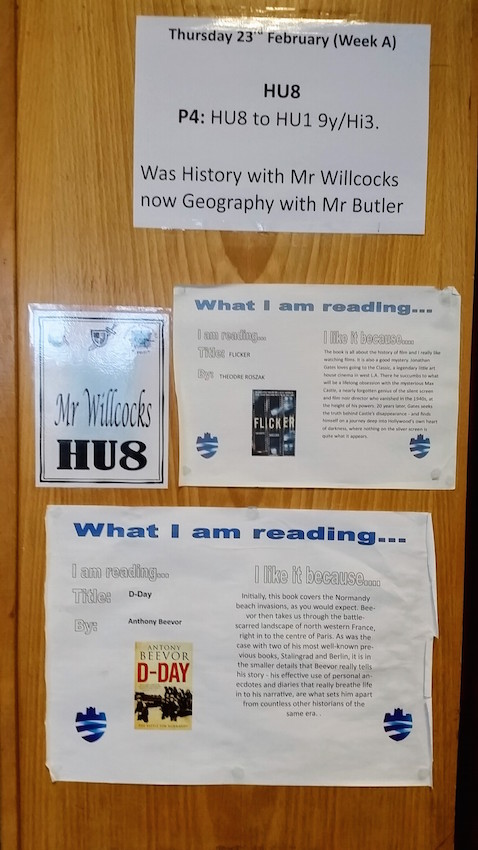
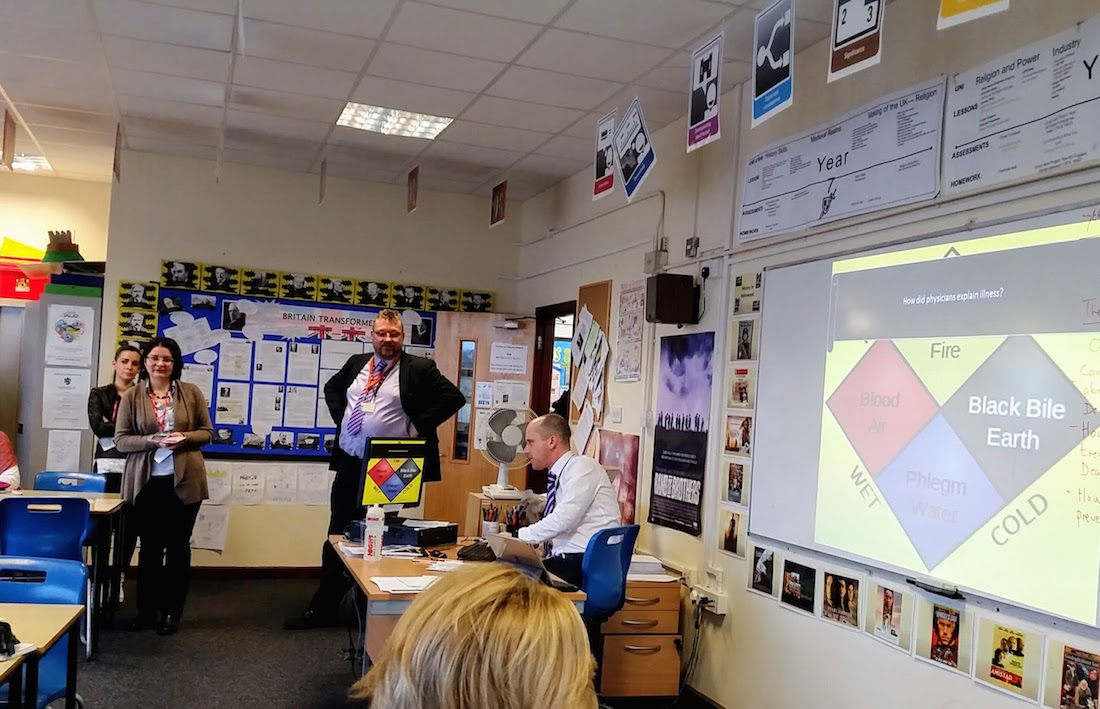
Students have no books (or rather, the books are property of the school and they remain in class -> it means that, when pupils use them, everyone has one). The lessons are divided into modules, which run throughout the historical period (for example, when I've arrived, they were talking about the medicine from the Middle Ages to the present). The lesson takes place through active learning and communicatives exchanges, in a continuous and tight dialogue between the teacher and the pupils, marked by the pictures projected on the whiteboard. At the end of the hour, a card carries a reinforcement for the students and a feedback for the teacher.
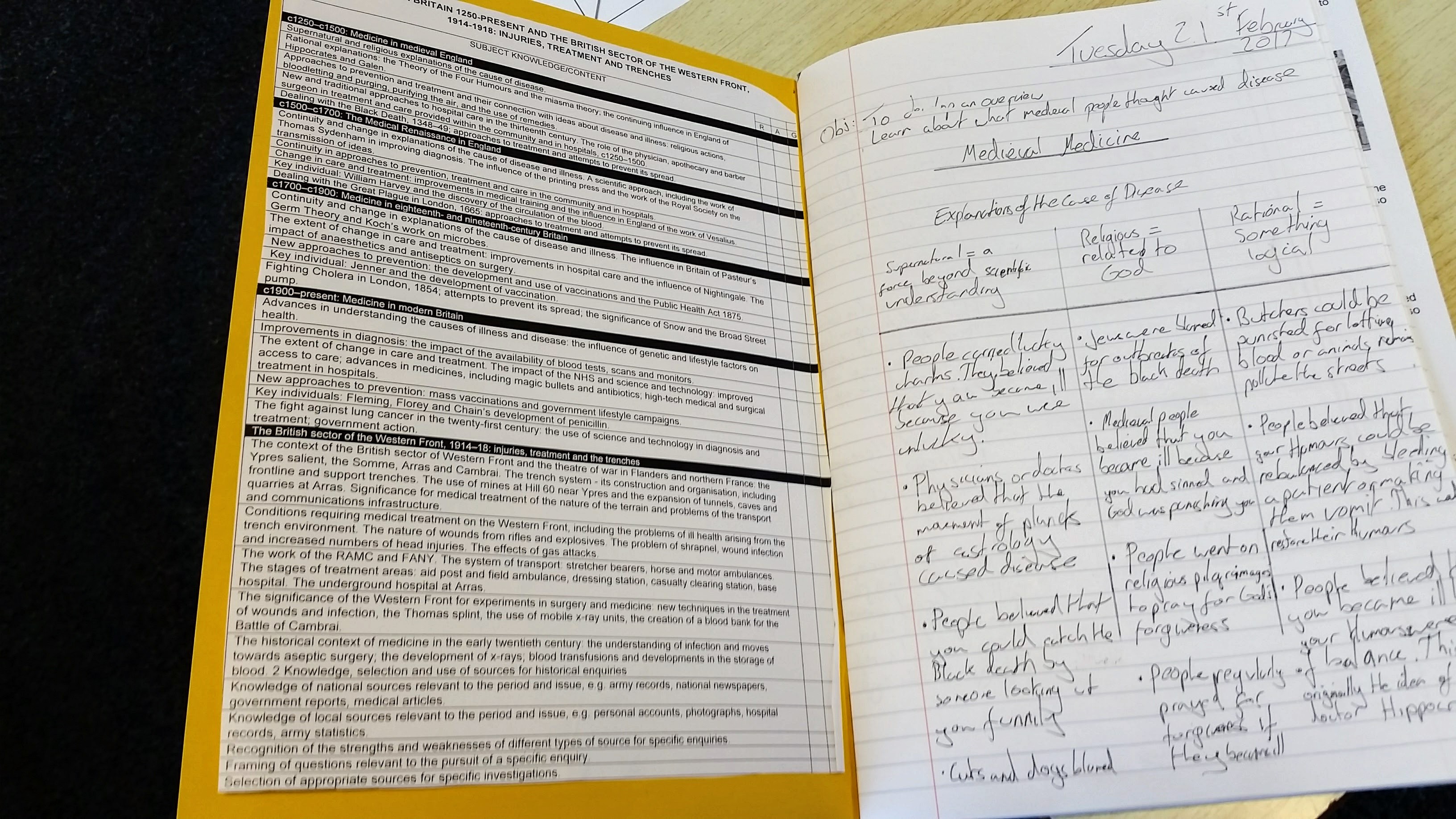
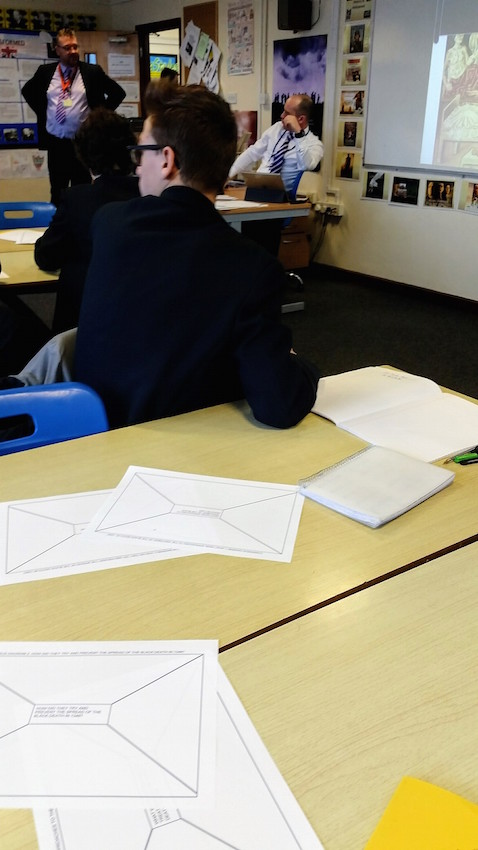
Love it! And what to say about English's classroom? It's not a class... it's like to be inside a library! I loved the exchange of corrections between the teacher and pupils. The first writes in red and the seconds answer in green, as if was a real dialogue written between them.
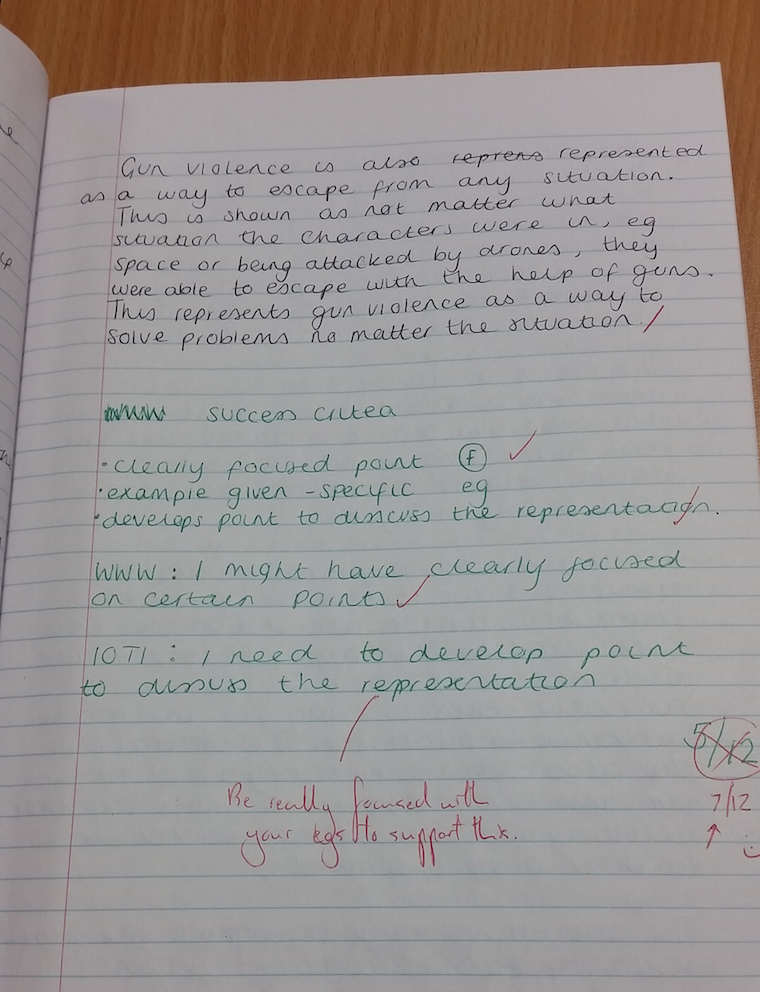
Plymstock school has also developed a great attention to reading skills. Not only every morning each student must devote at about half an hour for reading, but also they built a library (with a librarian) and here books are divided by age groups.
In this way, the library is not only the place where to borrow books, but also a place where to unwind and where students can come when they need to be alone. Great job!
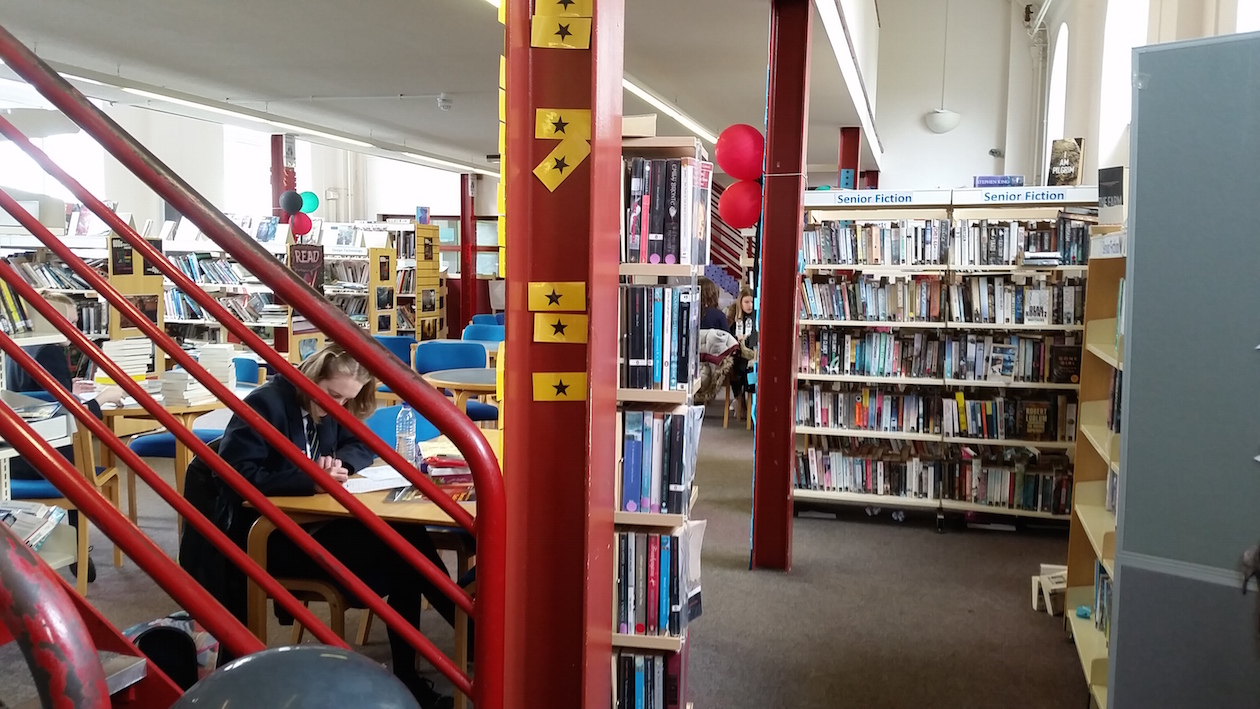
There was also a great attention to the sport. The fitness room, the outdoor football field, the danceroom, are open to the public in the evening, so they find an extra budget in a simple way.
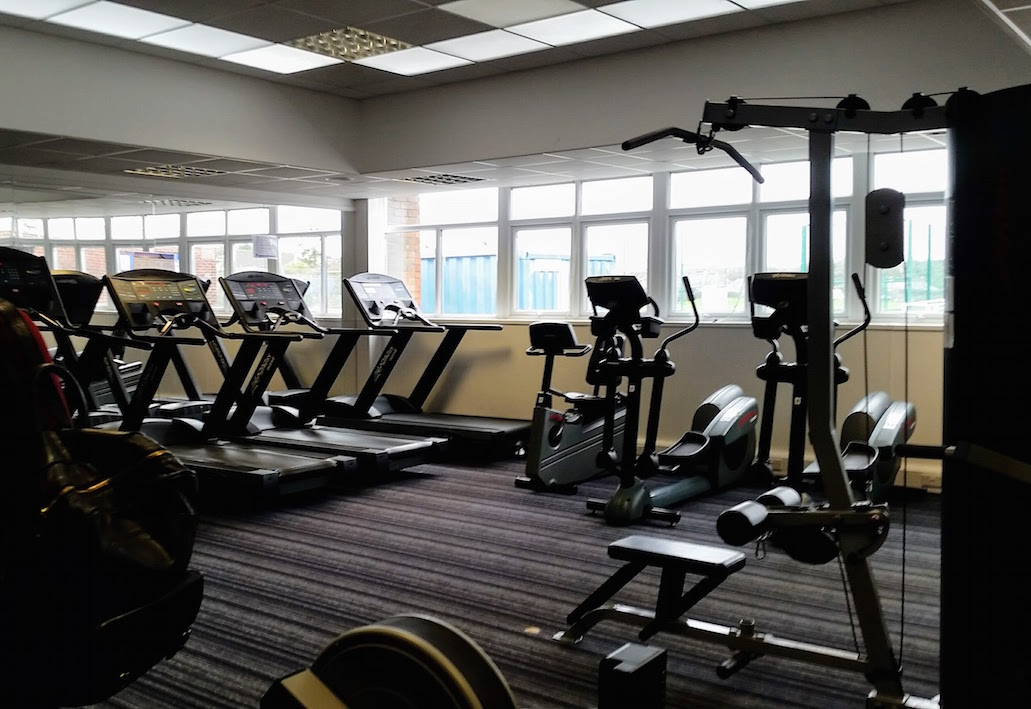
Day 6, 9th March 2017
MARINE ACADEMY
On the outskirts of Plymouth, in a neighborhood with a high percentage of unemployment and foreign immigrants, stands the Marine Academy. The most interesting thing about this school, recently renovated in a wonderful building, is that it was founded and now financed by Plymouth University. For this reason they call them "the University School". Plymouth evolved as a city because of the sea and its future prosperity, for Marine Academy, depends on it.
In this school, I understood how much important the einvornment is. The renovation project has brought around £14m investmente to the St Budeaux community. The new building faces the sea and reflect the promise of the region and the addition of Marine Academy Primary allows children from the age 0 - 19 to focus on their education and develpmente on one campus.
It's open to the whole community, offering theatre, sport, dance, technology and adult learning facilities. There's also an hair salon, dinining area and meeting rooms. So the schools has become the centre of the community in a difficoult area.
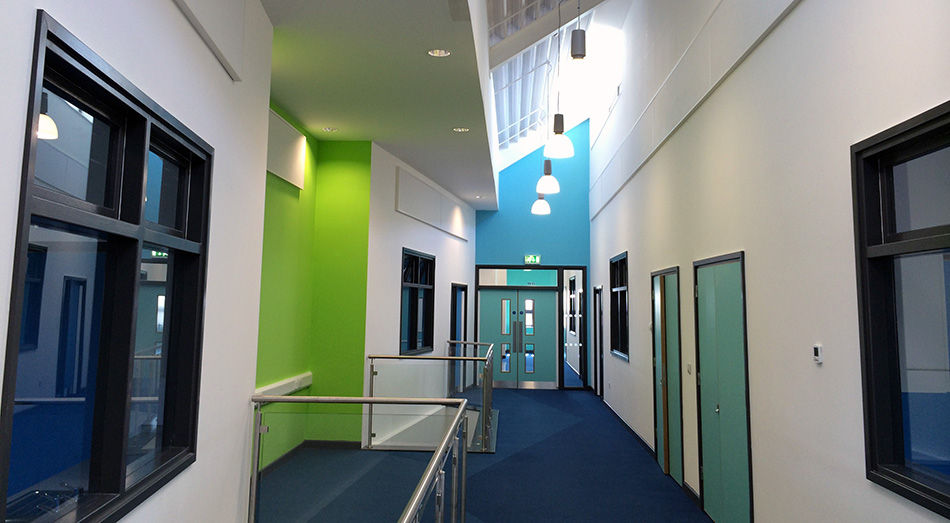
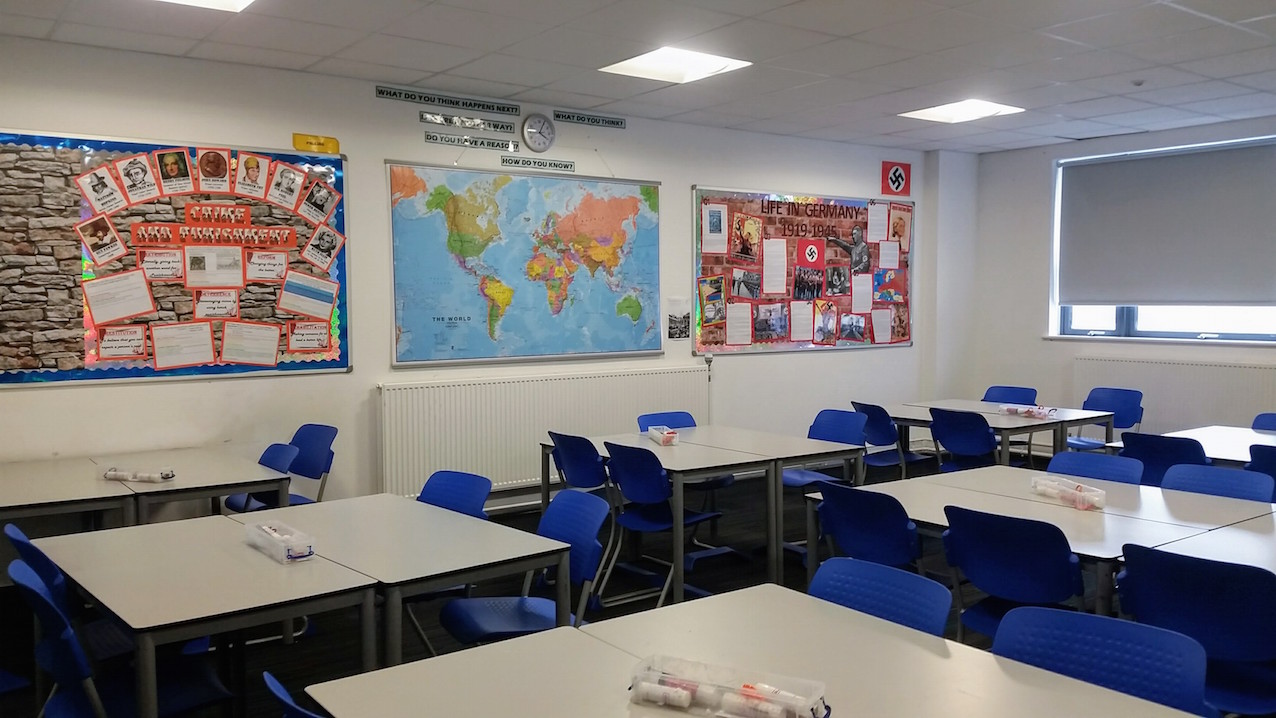
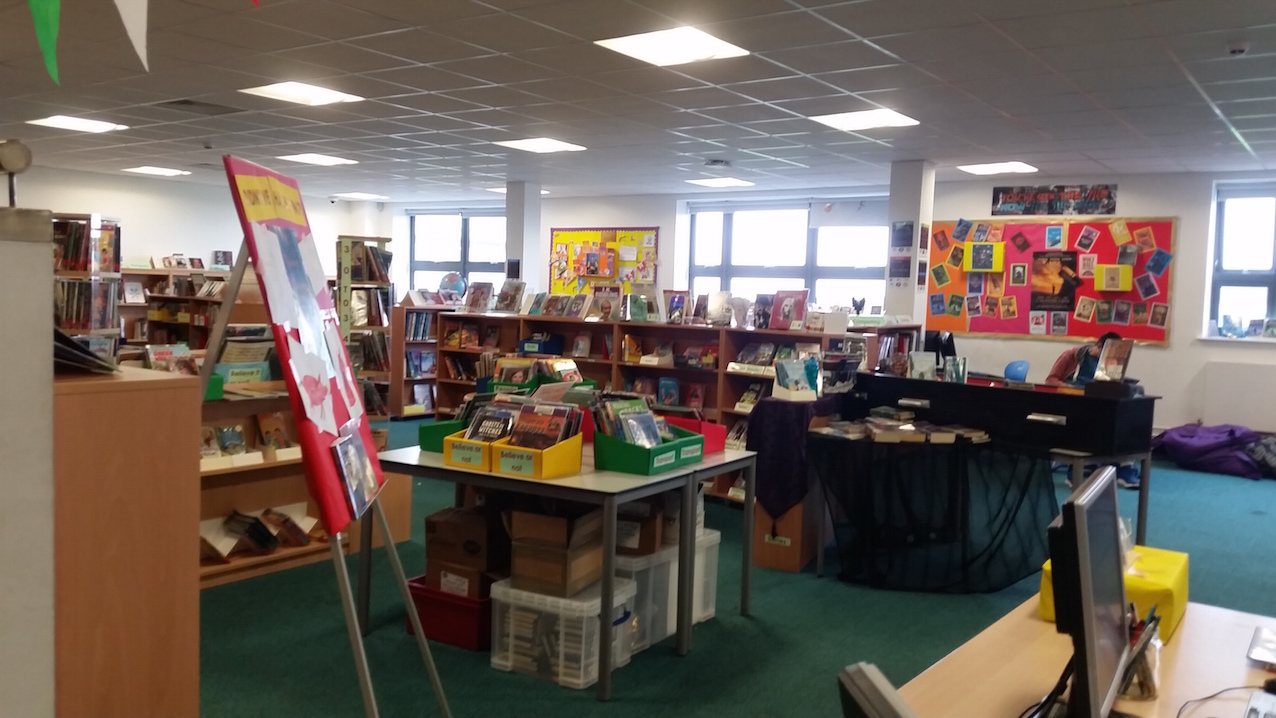
For them, it's very important their policy about rewars and consequences of pupils. We discussed a lot, for this reason, about the positivity or less of the presence of a special reward: the student of the month. The school wants to recognise those students who have done something a little extra or have excellent academic perfomance, behaviour ecc. Studentes are to be nominated each month by staff members, who feel that a particular student has stood out.
And you, what do you think? Is this competitiveness really constructive for pupils?
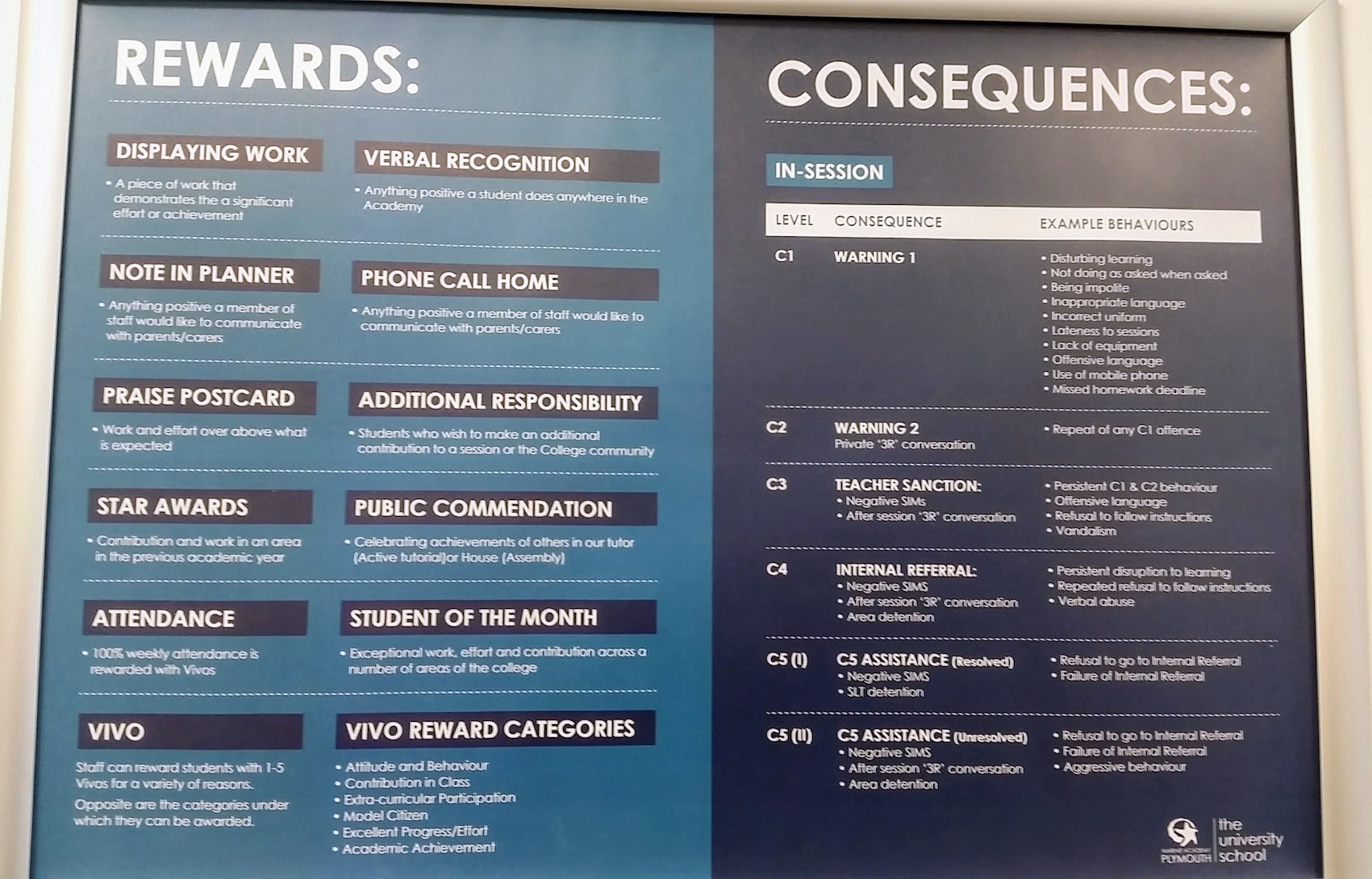
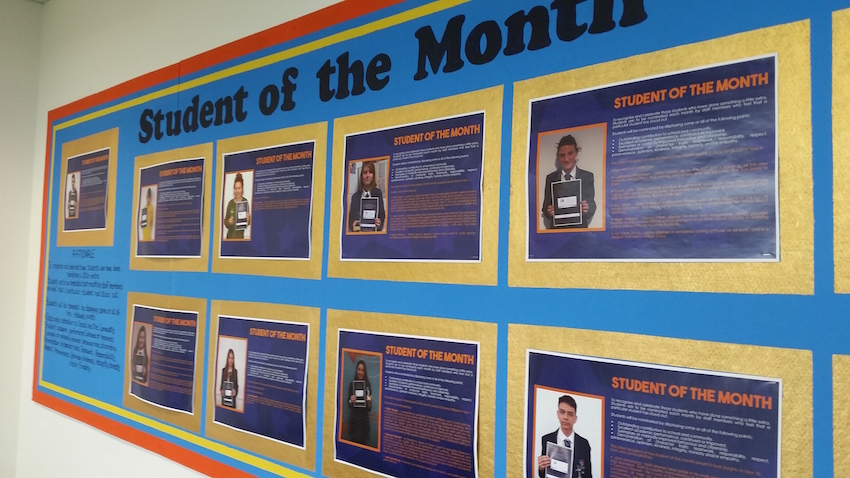
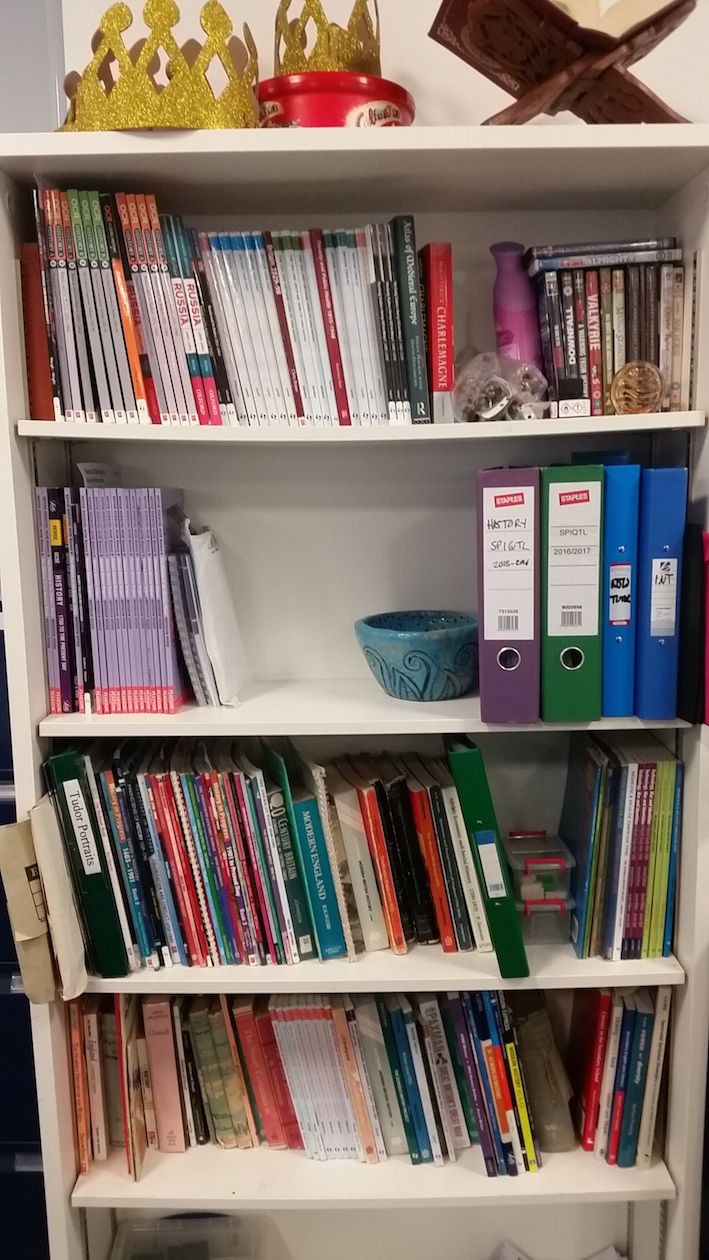
Look at the library in the history's classroom *___*
TOPIC COURSE DESCRIPTION
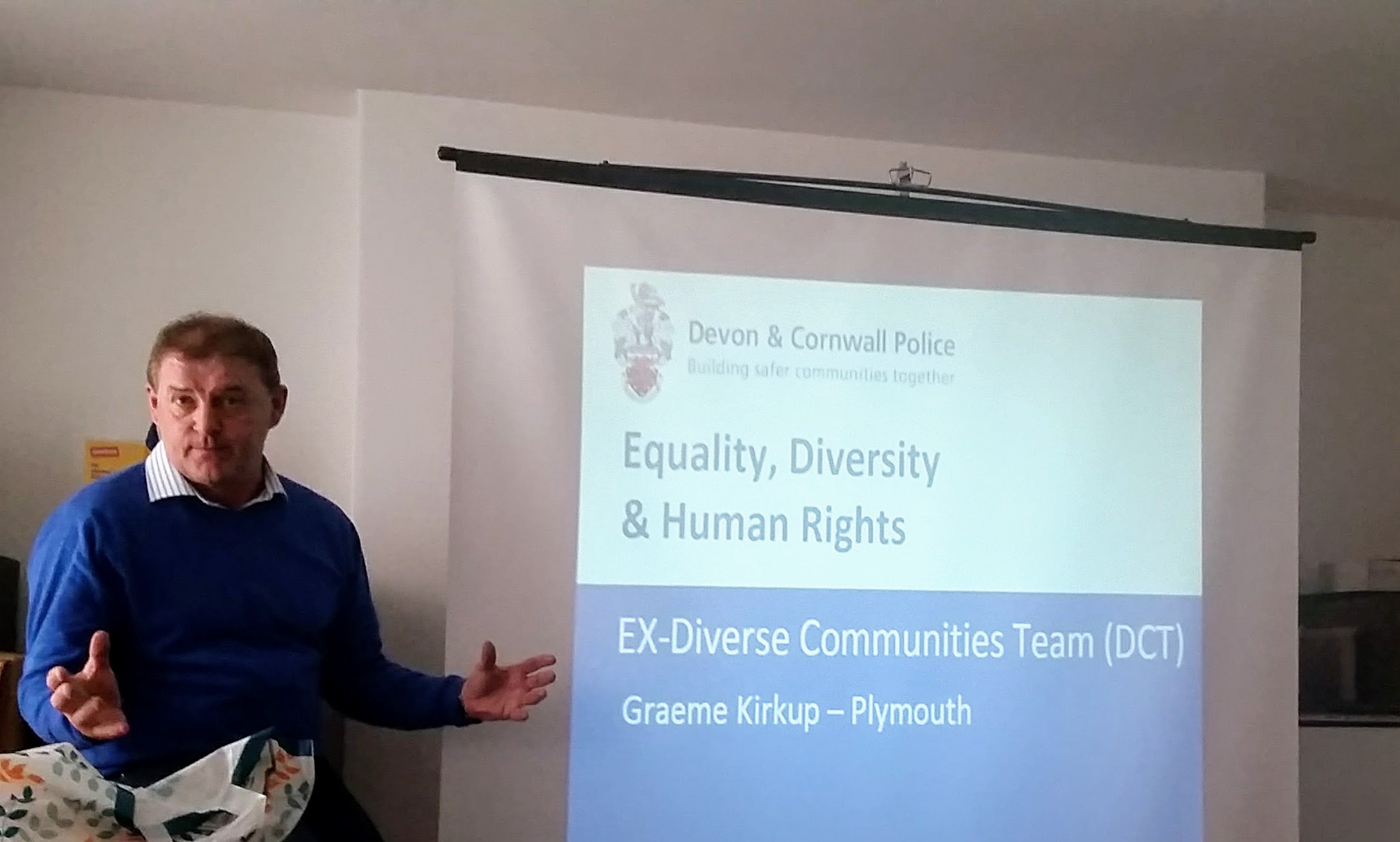
Respecting differences by Graeme Kirkup
In those days we visited the schools in the company of Graeme Kirkup, who up until six months ago, was a Police Officer, working in the Diversity Team, for Devon and Cornwall Constabulary.
This afternoon Graeme gave a presentation, focused on differences in Plymouth’s community and on the five key British Values (Individual Liberty, Mutual Respect, the Rule of Law, Democracy and the Tolerance of Different Faiths and Beliefs). He provided some examples about which questions asks in classrooms, when he goes to speak in Plymouth's schools.
TASK ONE
How many differences can we identify within our communities?
List all the differences in people that you can think of within your community.
IDENTIFYING DIFFERENCES: cultures, age, nationality, shape, languages, marriages, skin colours, wealth, interests, food, gender, disabilities, talents.
What is the definition of racism?
The belief that one group is inferior to another because of the race they belong to.
TASK TWO
List the types of abuse all the children were facing in the video
- bullying
- verbal abuse
- racism
- isolation
- physical abuse
Hate crime and the consequences.
How might the victims feel?
− isolated
− threatened
− scared
− different to everyone else
How might those living in the community feel?
− isolated
− divided communities
− scared to live a normal life
− threatened
− businesses might be ruined
How do the police deal with this type of behaviour?
- arrest anymore over the age of 10 years
- interview at police station with an appropriate adult, usually a parent
- offender will receive one of the following
- Out of court disposal, Youth caution, Youth Conditional Caution or Charge to Court
Pyramide of Hate (click to see)
We could show it in class just to create discussion.
Equality act 2010
It’s a law that protectes 9 characteristics:
- disability
- gender reassignment
- marriage& civil partnership
- pregnancy & maternity
- race
- religion &belief
- sex
- sexual orientation
Human Rights Act (1988)
- article 2: right to life
- article 3: prohibition of torture or degrading treatmet
- article 4: prohibition of slavery
- article 5: right to liberty and security
- article 6: right to a fair trial
- article 8: right to respect for private and family life
- article 10: freedom of expression
- article 11: freedom or assembly and association
Day 7, 10th March 2017
CITY COLLEGE PLYMOUTH
It's my last training day in Plymouth and, to end in a good way, we went to a very good istitute.
It was City College Plymouth, a special school for 16-19 years old for whom English is not their first language. ESOL (English for speakers of other languages) courses increase speaking, listening, reading and writing skills in English. Then they study also Mathematics and ICT, so they have basic skills for the working world. Of course in this type of istitute there're a lot of refugee and migrants, especially from Afghanistan, Iran, Iraq, Syria, Eritre, China, Romania.
City College Plymouth tries to develop the relationship and diversity thanks to a lot of extra-activities: for example, cooking, swimming, art exhibitions, footbal matches beetwen teachers/students. It's important, furthermore, to bring something positive to the community and volunteering is perfect for this aim, as to keep the streets clean or manage the rubbish.
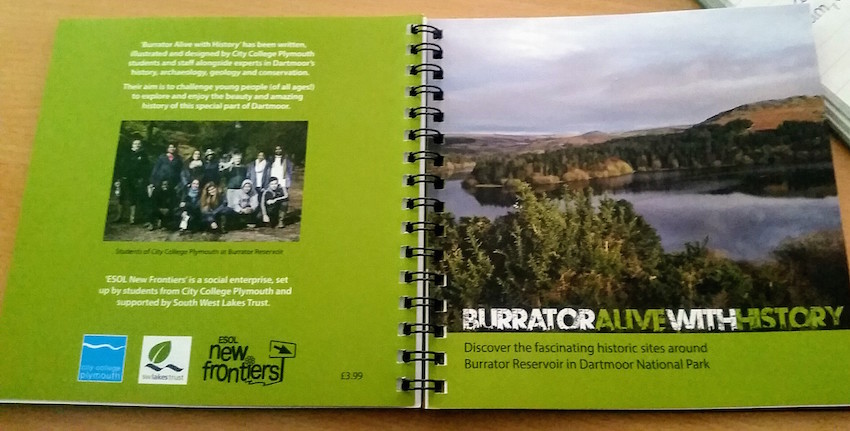
This book, about "Burrator Alive", has been written, illustrated and designed by City College Plymouth students and staff, alongside experts in Dartmoor's history and geology. Their aim is to challenge people of all ages to explore and enjoy the history of a special part of Dartmoor.
They made also an International Recipe Book, a project both to increase english skills and to motivate and gratify the students.
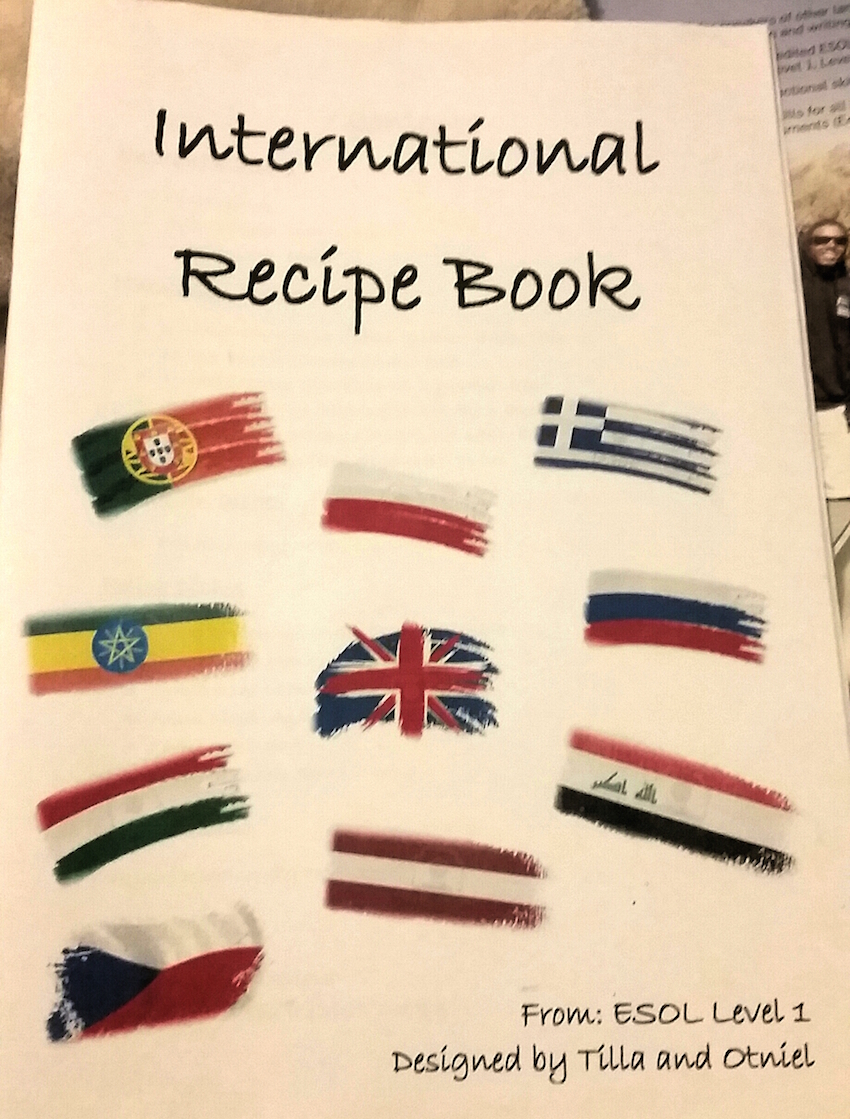
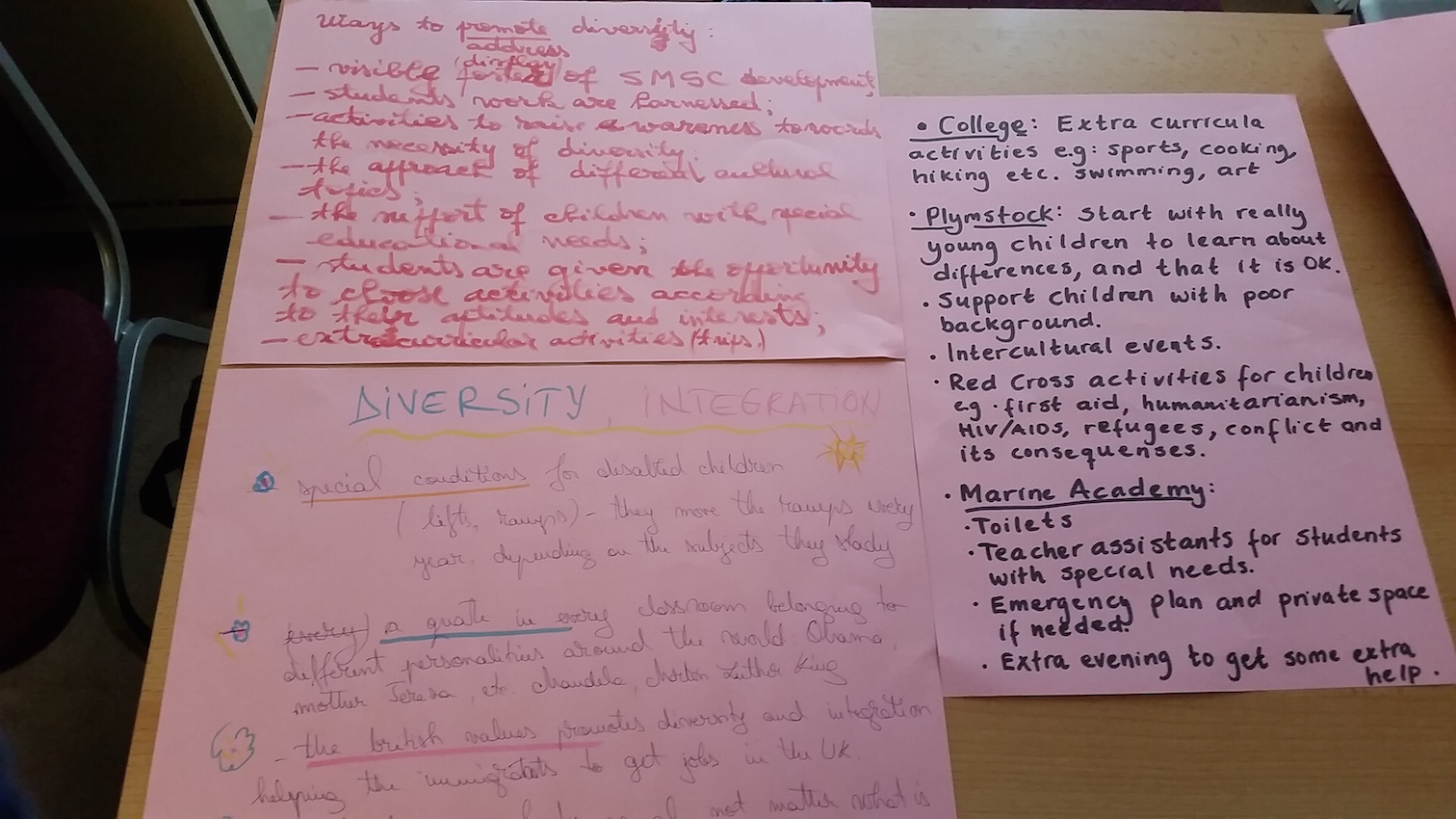
And so, with our final impressions, this experience in Plymouth is over =(
I really want to thank my project coordinators, Caterina Ruocco and Maria Maimone, for giving me this opportunity and for their consistent support. Thanks also to Rupert, Svetlana and Alex by Amber Initiatives for their organisation and incentives.
I hope to be a teacher slightly better after this week!!
See you soon, UK!!
